Search
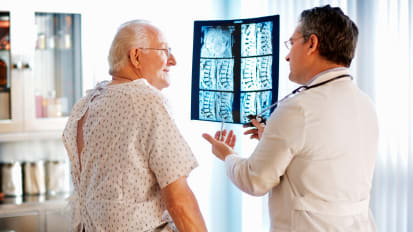 Video
Video
Navigation in Spinal Surgery: An Advantageous Tool of the Trade
Shane Burch, MD. Offering tips from his own experience in both complex and minimally invasive procedures, he explains navigation’s benefits – which include reducing radiation exposure, highlighting individual anatomy and supporting tasks such as screw placement – as well as how to avoid common user errors. Video
Video
A Wake-Up Call on Restless Leg Syndrome: Common, Life-Affecting and Treatable
Neurologist and sleep medicine specialist Liza Ashbrook, MD, presents a quick, thorough lesson on RLS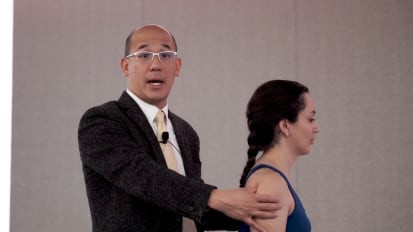 Video
Video
A Primer on Pain: Assessing the Shoulder
Orthopedic surgeon C. Benjamin Ma, MD, demos a thorough shoulder exam, covering palpation points; how much pressure to use; and hallmarks of common injuries, such as rotator cuff tears and SLAP lesions. News
News
New Guidance on Using Biologics to Treat Chronic Rhinosinusitis with Nasal Polyps, Led by UCSF Clinician
Approximately 25 percent of people with chronic rhinosinusitis have nasal polyps, a condition associated with significant morbidity and decreased quality of life. Video
Video
Approaches to Hematologic Cancers
Jeffrey Wolf, MD, director of the Myeloma Program at UCSF Health, discusses the traditional approaches to hematologic cancers.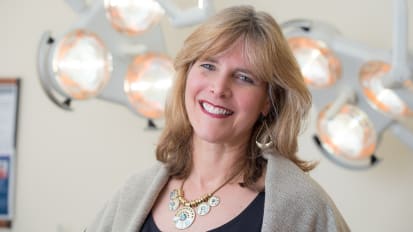 News
News
UCSF Deploys Innovative Data System to Integrate Research and Care
UC San Francisco (UCSF), in collaboration with the Quantum Leap Healthcare Collaborative (QLHC) and the U.S. Food and Drug Administration (FDA) has developed the OneSource system to seamlessly integrate clinical care and research data.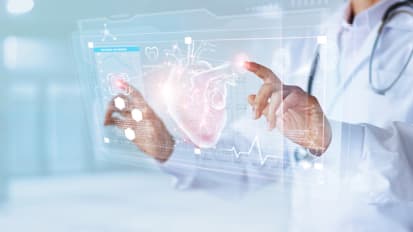 Video
Video
Hypertrophic Cardiomyopathy: Mostly Benign, Sometimes Lethal
Theodore Abraham, MD, discusses hypertrophic cardiomyopathy, a common inherited heart disease that is usually benign, but can be fatal in up to 10 percent of cases.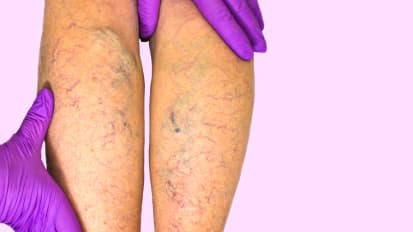 Video
Video
Chronic Venous Insufficiency: Caring for a Common and Disabling Condition
Proper classification and appropriate treatment of CVI will relieve pain and improve quality of life. Interventional radiologist Alexander Lam, MD, presents current guidelines and therapeutic options. News
News
UCSF’s Anbukkarasi Muniyandi Accepted into Prestigious Emerging Vision Scientist Program
UCSF vision researcher Anbukkarasi Muniyandi, PhD, has been selected as an “Emerging Vision Scientist (EVS)” by the National Alliance for Eye and Vision Research (NAEVR)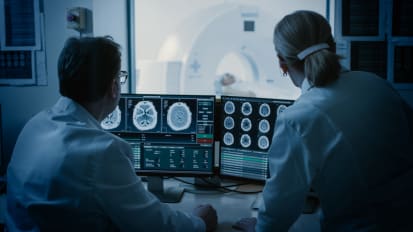 Video
Video
Hope on the Horizon: Specialists Reveal New Approaches to Deadly Malignancies
Here’s an exciting look at recent improvements in our understanding and management of certain malignancies normally associated with a poor prognosis. News
News
Airway Stenosis Study Focuses on Optimizing Patient Outcomes
UCSF researchers, in collaboration with colleagues at two other tertiary medical centers, determined that patients with multilevel airway stenosis (MLAS) have lower tracheostomy decannulation rates and require more surgeries than patients with posterior glottic stenosis (PGS). News
News
Study Finds Paxlovid Treatment Does Not Reduce Risk of Long COVID
A team of researchers from UC San Francisco has found that Paxlovid (Nirmatrelvir-ritonavir) did not reduce the risk of developing long COVID for vaccinated, non-hospitalized individuals during their first COVID-19 infection. Video
Video
Everyday Heart Disease Prevention: An Update on Risk Assessment and Clinical Strategies
With heart disease deaths on the upswing since 2010, primary care providers must routinely develop individualized plans to protect their patients from atherosclerosis. Video
Video
Dry Days Ahead: Effective Strategies for Common Urinary Complaints
While stress incontinence and overactive bladder may not be life-threatening, they can be life-diminishing. Yet, with the stepped care approach presented by urologic surgeon Anne M. Suskind, MD, MS, FACS, clinicians can find a remedy to help almost any patient. Video
Video
Managing Patients With Pelvic Fracture Urethral Injuries: From Stabilization to Repair
UCSF Urologist Lindsay A. Hampson, MD, a specialist in genitourinary reconstruction and male incontinence, presents current guidelines on optimal care of urethral injuries. News
News
UCSF Among First in U.S. to Receive New Pulmonary Care Designation
UCSF has been designated a Bronchiectasis and NTM Care Center, based on the depth and breadth of its services. News
News
How We Could Test for Unhealthy Alcohol Use Before It's Too Late
A new study finds that a blood test may be a more reliable indicator of liver disease than asking how much a person drinks.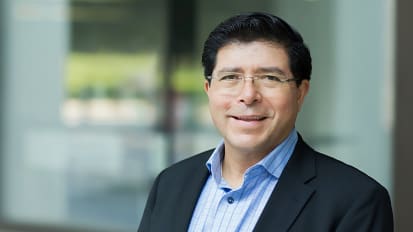 News
News
Pancreatic Cancer Patient Exceeds Life Expectancy After Complex Whipple Procedure at UCSF
A team of UCSF surgeons devised a successful reconstruction approach during a complex Whipple procedure in a 69-year-old man with locally advanced pancreatic adenocarcinoma.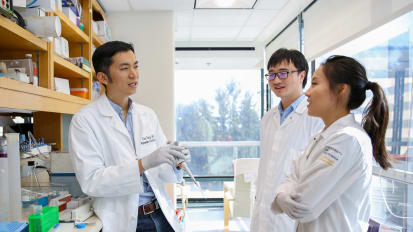 News
News
Susceptibility to Pathogenic T Cells in Chronic Lung Disease May have a Genetic Basis
Respiratory viral infections pose significant morbidity and mortality to patients with chronic lung diseases like emphysema and COPD, causing exacerbations that drive destruction of normal lung tissue, and leading to one of the most common diagnoses for hospital admissions.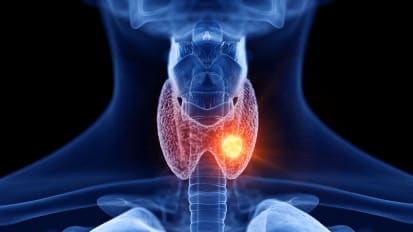 Video
Video
Incidental Thyroid Nodules: Benign Bump or Big Deal?
A lump on the thyroid is a common finding in both physical exams and imaging studies, but the significance varies greatly.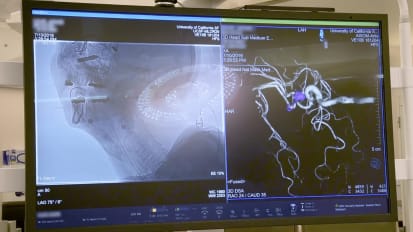 Video
Video
Treating Brain Aneurysms: How a Savvy Neurosurgical Team Individualizes Care
In this short video, vascular and endovascular surgeon Ethan Winkler, MD, PhD, explains the factors that go into determining the right treatment for different cases involving dangerously bulging blood vessels in the brain.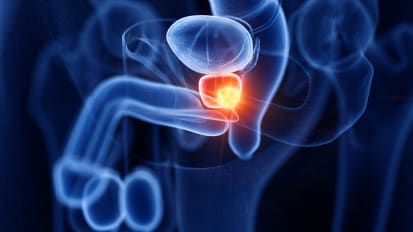 Video
Video
Clearing the Confusion Over Prostate Cancer Screening
Doctors have backed off on routine use of the PSA test, yet prostate cancer remains the second most common fatal cancer in American men. Genitourinary oncologist Matthew R. Cooperberg, MD says that screening shouldn’t stop, it should be smarter Document
Document
Epilepsy Center
The UCSF Epilepsy Center is the Bay Area’s premier level 4 epilepsy center, the highest possible rating from the National Association of Epilepsy Centers. News
News
Stephen Hauser Wins Breakthrough Prize for Role in Redefining MS
Neuro-immunologist Stephen Hauser, MD, whose maverick thinking transformed the treatment landscape for patients with multiple sclerosis (MS), has received the 2025 Breakthrough Prize in Life Sciences.

